Kikue Mōri
Nascimento : 1903-11-03, Gunma Prefecture, Japan
Morte : 2001-08-20
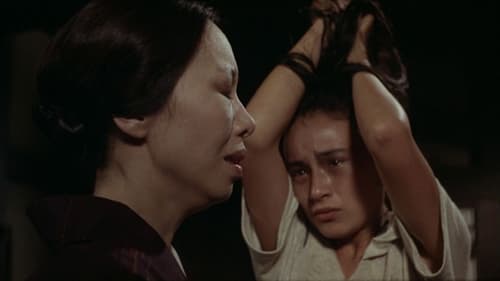
Hell manifests itself through the sins, shame and desires of an upper class rural family and a mother's grief from beyond the grave.
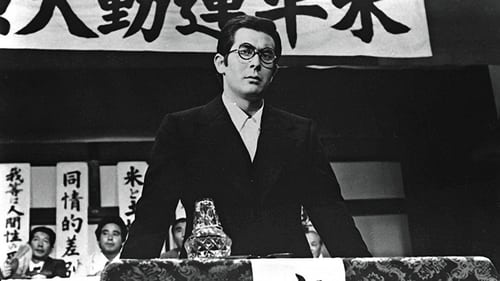
Chiyo Matsumoto
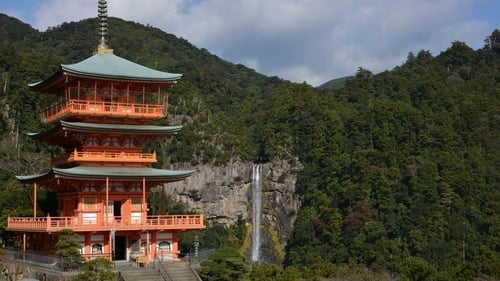
Old woman
Two Jesuit priests encounter persecution when they travel to Japan in the 17th century to spread Christianity and search for their mentor.

Grandmother Yoshino
Lesser, but still modestly entertaining sequel. Wakayama is wonderfully bastardly here, but has to do without Chicago bros. Yamashiro & Watanabe and the film is just that much less fun. It's also a little bogged down by an out-of-place environmental message. In return one does get Willie Dorsey (who would go on to lose his balls in The Street Fighter) in a rather big role as Capone's right hand man. There's a legion of other gaijin as well, Osman Yusuf among them of course. The rating could be a notch higher on a good day.
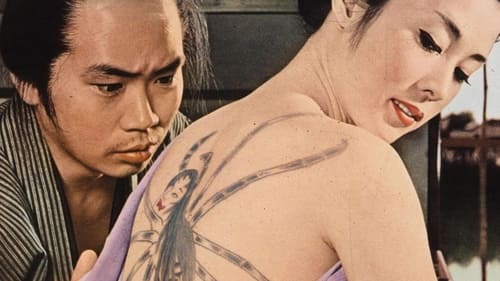
Shinsuke's Mother
Uma mulher sedutora é sequestrada para a prostituição. Depois de fazer uma tatuagem de aranha nas costas dela, ela inicia a sua vingança, deixando vários homens pelo caminho.
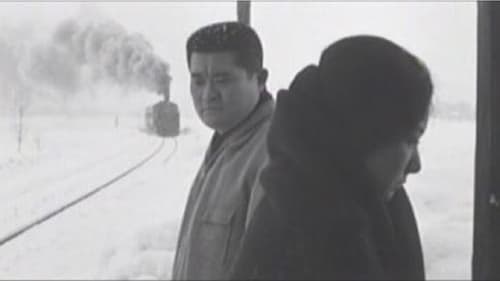
Young widow Ine is suffering under the harsh treatment of her mother in law. As a former Geisha, Ine had struggled to be accepted into the well-established Rokujo family from the beginning. With the support of Jiro, a young man Ine's late husband had saved from homelessness as a young boy, Ine tries to keep the family's heritage of silk processing alive. Their close relationship soon causes gossip among the villagers and threaten Ine's position in the family even further ...

Osaka, 1907: Asajiro lives between a rock and a hard place: he has to keep his business clean and running, tame his late oyabun’s hot-blooded son and suffer the throes of his impossible love for beautiful geisha Hatsue.

This tragic drama shows a young man fettered by Bushido, the way of the Samurai, who tried to escape the chains of his position, but was being forced to die. When the Tokugawa Shogunate ruled the land, Tatsuno castle in Wakisaka Clan's home of Harima held an established custom, the inspection of the arms warehouse. The Government Inspector Okuno Magodayu found a slight bit of dirt on the point of a spear and mentioned it with disdain. Ezaki Shinpachi heard it and started an argument with him. Magodayu then sent a a letter of challenge to him because he felt insulted by a low-ranking underling without a title. As it turned out Magodayu was killed. Since then, Shinpachi and the Okuno family have had continuous revenge duels. The tension mounts as this story builds to an extremely violent climax, when blood must pay for blood if the clan is to survive!

Could I But Live
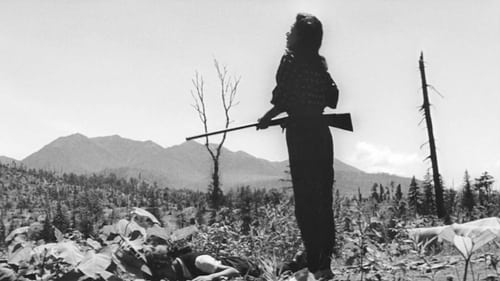
Umeno Sonobe
A Tokyo family escaping the war relocates to a Hokkaido village; their daughter is set to marry the local leader's son, but her siblings disapprove.

Based on the novel of the same name by Seichō Matsumoto.
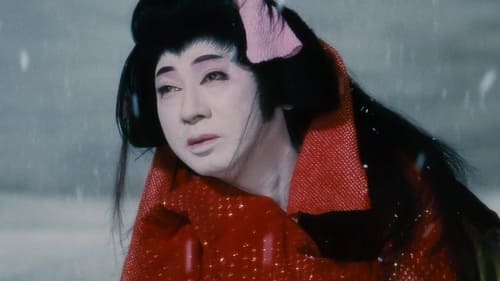
Cruel Old Woman
Em uma excursão com seu grupo de teatro kabuku, Yukinojo, ator principal da trupe, acaba cruzando com os três homens que levaram seus pais ao suicídio, 20 anos antes. Yukinojo então trama sua vingança, primeiro seduzindo a filha de um deles e depois os levando à ruína.
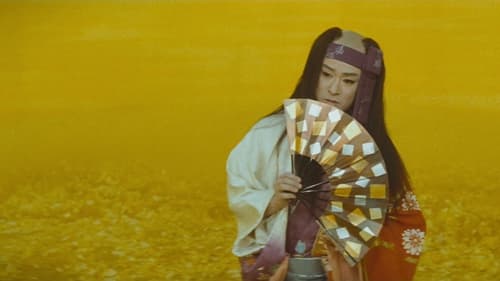
A court fortune-teller loses his mind after a conspiracy leads to the death of his lover. Hope appears to be on the horizon after he becomes romantically involved with his dead lover’s twin sister, but more complications arise thanks to a chance encounter with a clan of shape-shifters.

In the year 1637 in Shimabara of Tokugawa-era Japan, oppressed peasant Christians revolt against the shogunate with the aid of a charismatic Christian rebel leader Shiro Amakusa.

When master swordsman Mikogami Genshiro of the Ono fencing school returns to find that his ailing sensei has been murdered in the dead of night, he must find the culprit and exact revenge. His return sets off a series of violent incidents and incites a high ranked female skilled in sword to test his mettle after he unwittingly offends her. The ever delightful Misora Hibari co-stars with the great Tsuruta Koji in this exciting tale set in the earliest days of the Tokugawa shogunate. Lots of exciting swordfights highlight this entertaining motion picture!
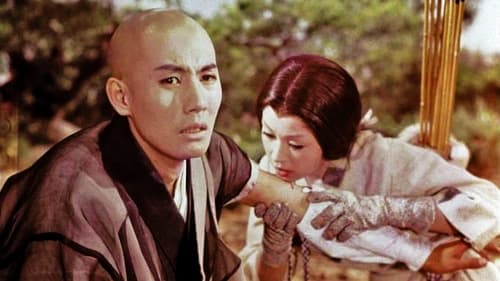
Nagisa
Princess Kiyo accidentally injures a local priest, Anchin, while on a hunt. She apologizes, but feels irritated by Anchin’s indifference to her in spite of her beauty. One night, while Anchin is recuperating in a hot spring, he is approached by Kiyo. She tells him that she is in love with him.

Kino
Kikuji is the scion of an Osaka merchant family whose traditional power is matrilineal. Instructed by his overbearing mother and grandmother to give them an heiress for the family business, he stands by helplessly as his wife is thrown out of the house for producing a son. Driven to a life of dissipation - his mistresses also fail to produce daughters - in the end he is just too tired to care.

A samurai warrior attempts to stop Kublai Khan's Mongol hordes from overrunning Japan in the 13th century.

Sayoko
Sixth sequel to "Story of Second Class Private".

Two brothers, Takamaru and Kikumaru, are living with their father, Hakuraku-Ou, until one day Hakuraku-Ou is killed by "Death's-Head" Ginnosuke, a villain skilled in the art of sorcery. Hakuraku-Ou had long been seeking a Tiger Seal which, together with the Dragon Seal in his possession, would reveal the location of a huge ancestral fortune. But on the very night that the Tiger Seal was found, it was stolen by Tomomitsu, Ginnosuke's chief. When the two brothers receive the Dragon Seal from their father just before his death they determine to go to Death's-Head Castle, in order to recover the Tiger Seal.

An ageing fishing boat, Dai-go Fukuryu Maru ("Lucky Dragon No. 5") sets out from the port of Yaizu in Shizuoka Prefecture. It travels around the Pacific line fishing. While the ship is near Bikini Atoll, the ship's navigator sees a flash. All the crew come up to watch. They realize it is an atomic explosion, but take time to clear their fishing gear. A short time later, grey ash starts to fall on the ship. When the ship returns to port the sailors have been burned brown. They unload the fish, which are then transported away. They visit the local doctor and then go to Tokyo for an examination. It turns out they are all highly radioactive. Their symptoms become worse, and the contaminated fish causes a panic.

Following a yearlong attendance upon his shogun in Edo, samurai Hikokuro makes a long-awaited return to his home and doting wife, Dane. Initially greeted by the effusive welcome of his family, spiteful whispers also reach his ear about an adulterous affair carried on, in his long absence, between his wife and a famous drummer. With Hikokuro’s honor imperiled by rumor, his family insists on a formal investigation into the veracity of the gossip. Through the combined testimony of many witnesses, a tale unwinds around the visits of a traveling musician hired to tutor the family heir, the spurned attentions of the man who started the rumor, and the ultimate truth behind the accusations. The conclusion of events prove as much an indictment of bushidō as it is of the reluctant parties involved. Adapted from a 1706 play by Chikamatsu Monzaemon and based on a true case.

In the mist of the warring age (Sengoku Era), the Kyushu based Hayato Clan is faced with a monumental battle to determine their survival.

After killing the deceiver, the Masa gambler comes to Ina. There is a horse market in Ina, and the landowner Tamegoro, plans to steal the proceeds from the sale. Tamegoro steals money and blames the Masa for this crime. Masa has to go on the run, because now he is wanted for a crime that he did not commit...

Tsuru
Christ in Bronze is a 1955 black-and-white Japanese film directed by Minoru Shibuya. It was entered into the 1956 Cannes Film Festival.
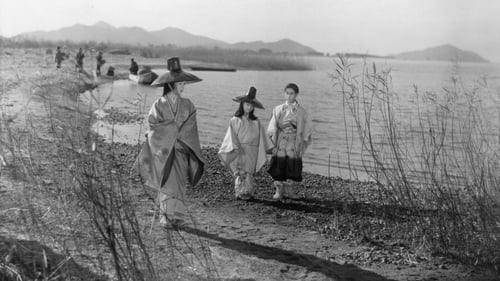
Priestess
Japão, século XI. A família de Taira é separada pelas lideranças feudais. Seus dois filhos, Zushiô e Anju, são enviados para um campo de trabalho escravo comandado pelo temido Sanshô, enquanto sua esposa, Tamaki, é forçada a prostituir-se em uma região isolada. (e 12 - Estimado 12 Anos)

Each one of us lives differently. So, there are many tragedies and comedies in our lives. She feels many conflicts in living her life between truth and love.
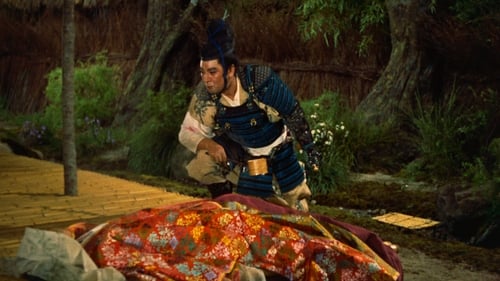
Sawa
Em 1159, durante uma tentativa de golpe contra a realeza, arma-se um plano para que a família real possa fugir. Uma senhora da corte aproveita a situação e se faz passar de esposa de um Lorde para sair da cidade. Ela conta com a ajuda de um samurai, que a escolta com segurança. Mais tarde, o samurai pede ao Lorde como recompensa a mão desta mulher em casamento. Mas ele descobre que ela já é casada. O samurai não irá desistir e chegará a desafiar o marido de sua amada para que a deixe, o que irá gerar trágicas consequências.
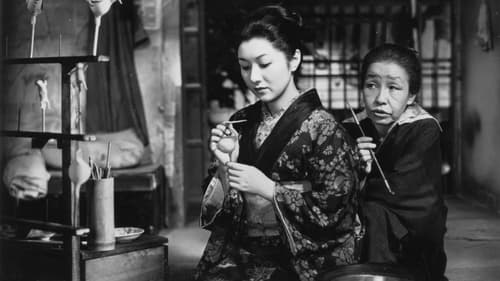
In the post-war Gion district of Kyoto, the geisha Miyoharu agrees to apprentice the 16 year-old Eiko, whose mother was a former geisha who had just died. After a year of training they have to find a large sum of money before Eiko can debut. Miyoharu borrows the money from the tea-house owner, Okimi, who in turn obtains the money from the businessman Kusuda. Kusuda fancies Eiko himself and wants to give Miyoharu to Kanzaki in order to close a large business deal. However both geishas have minds of their own and, going against tradition, want to be able to say no to clients.

Nobuko Otowa won the Blue Ribbon for the Best Actress for this movie among others.
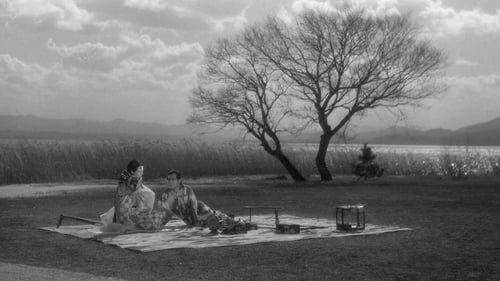
Ukon
No Japão do século 16, os camponeses Genjuro e Tobei vendem as suas panelas de barro para um grupo de soldados numa vila próxima, desafiando a advertência de um sábio local contra a tentativa de lucrar com a guerra. A busca de Genjuro por riquezas e a misteriosa Lady Wakasa, assim como o desejo de Tobei de se tornar um samurai, correm o risco de destruir tanto a si quanto as suas esposas, Miyagi e Ohama.

A woman loses her son through an evil conspiracy and commits suicide. Shortly afterwards a ghost cat begins haunting the conspirators. This is Takako Irie's first bakeneko (ghost cat) movie; it started a Daiei cycle which was very popular at the time in Japan.

An intellectual couple in a staid and tedious marriage are surprised when the wife’s niece, who has run away from home, turns up unexpectedly to stay with them. Their mundane lives are sent into disarray by the emotional and energetic Ako.
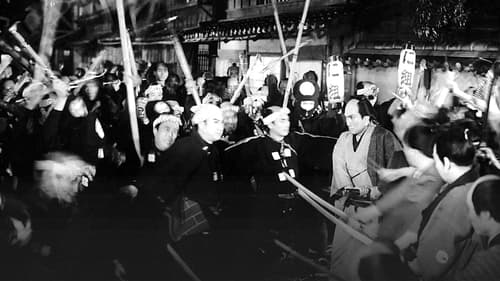
Oyone
A film about the rivalry and friendship between firefighter Chоji and sumo wrestler Sokichi Fudoyama.
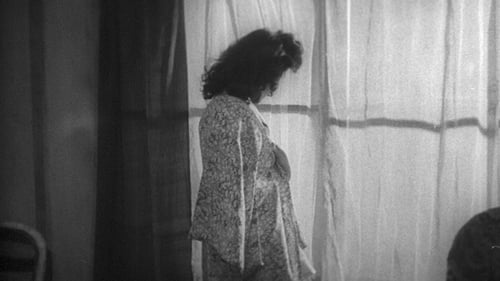
Fusako, a drug dealer's young mistress in postwar Japan, loses her tenuous grasp on life upon learning about her lover's affair.
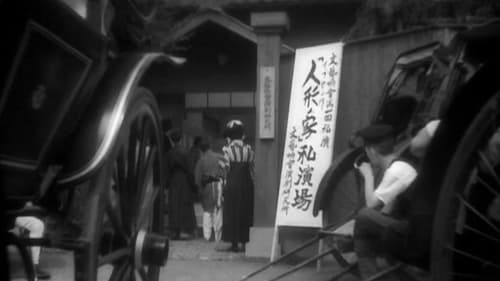
The stage director Shimamura, who is bringing western theatre to Japan, falls in love with the outspoken actress Sumako Matsui, and leaves his family to be with her, while trying to keep his Art Theatre solvent.





























